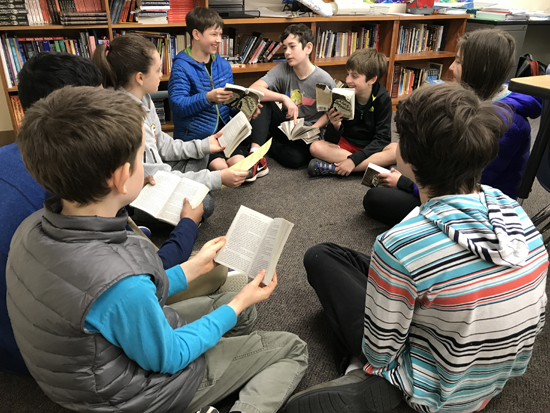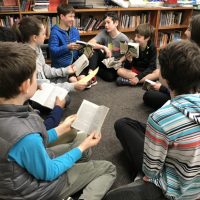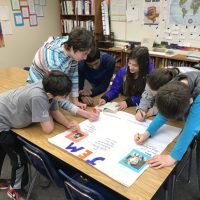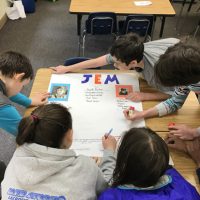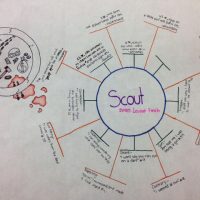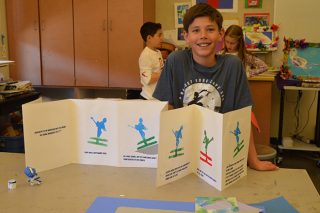This year, seventh and eighth graders in Eton School’s Language Arts/Social Studies program spent several months studying Harper Lee’s To Kill a Mockingbird, examining central questions such as what factors influence our moral growth and what kinds of experiences help us judge right from wrong.
The class explored concepts such as “universe of obligation” and “code-switching,” analyzed the characters and their motivations, and considered the themes and messages of the story—discussing both the facts of the case and the underlying causes of the guilty verdict. They learned the importance of walking in another’s shoes in order to see and understand different perspectives and choices.
“These are serious questions for middle school students as they grapple with their own choices and beliefs, so we had thought-provoking discussions,” says Dr. Sue Walker, who teaches the class. Students wrote weekly reflections reacting to the content, identifying the characters’ moral questions and struggles, and looking closely at the author’s writing style.
“This is probably the first time I ever read a book that started out slow and took time to build a complex and interesting plot,” says one student. “It taught me how racism corrupts and infects people.” Another student calls the book “a masterpiece. After reading it, I understand why it’s remembered today.”
The program is in line with Eton’s mission statement, which focuses on educating the whole child—intellectual, emotional, social, physical, and spiritual. Next year’s World War II unit will examine their state’s connection to Japanese Internment. Students will visit the Bainbridge Island Japanese American Exclusion Memorial to meet individuals who were interned and hear their stories first hand.
